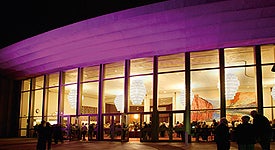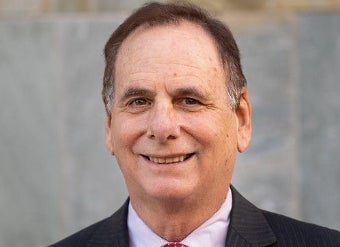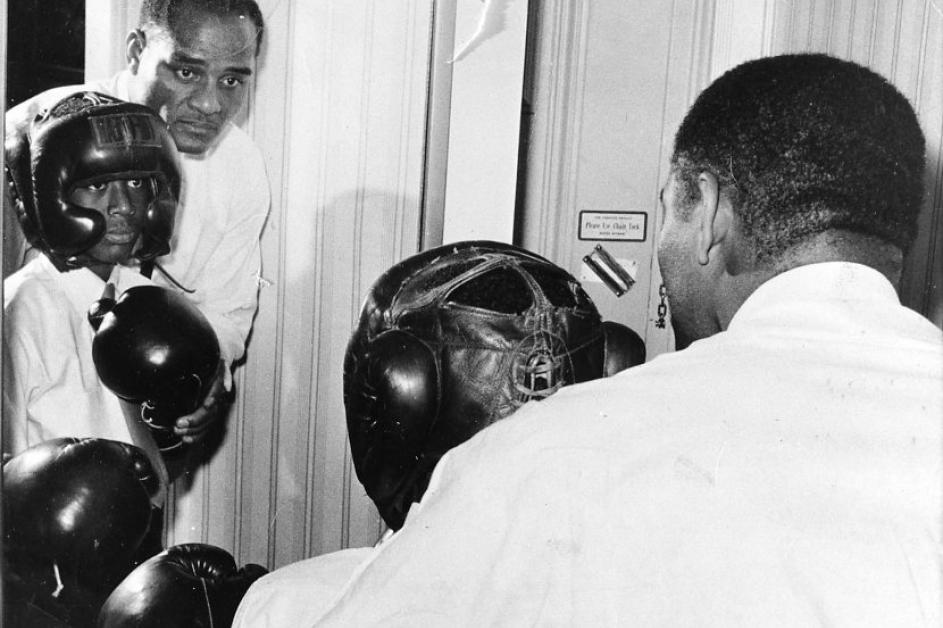
It was March 22, 1967, at Madison Square Garden. Two men were about to compete for the Heavyweight Championship of the World at a time when the country was heavily divided in more ways than one, and this fight was at the center of it all.
In one corner stood Muhammad Ali. In the other corner stood his competitor, Zora Folley from Chandler, Arizona.
In honor of this historic fight, the Chandler Museum will host a presentation and Q&A about the life and significance of Zora Folley and his impact on boxing and the Chandler community. Join us on June 29 at 10:30 a.m. for the full story.
Why This Fight
Zora Folley’s success was widely celebrated throughout Chandler over the course of his career. However, the historical implications of this fight, in particular, traveled wider and further than the Valley alone. In seven short rounds, this moment in history managed to speak to the combined significance of race, religion, sport, and politics throughout the 1960s, all in one.
Before the fight began, the two men stood at opposite poles of black American society.
Muhammad Ali, formerly known as Cassius Clay, was an outspoken rebel of sorts, often playing the villain (or “heel,” as it is known in wrestling) in his matches. He supported Malcolm X, and he was an active member of the Nation of Islam. At the time, the group was both racially and religiously controversial and was viewed by many at the time as un-American.
Opposite Ali was Folley -- an all-American fighter and quiet family man. He was well respected in the boxing community and was viewed by many as a polite and gentlemanly boxer. As a Catholic with eight children, Folley appealed to the morally traditional side of American culture.
This Day in History
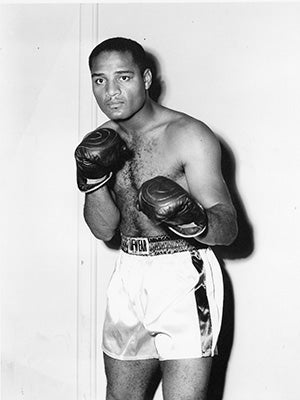
The most obvious point of cultural significance for this fight was its place in the middle of the Vietnam War.
Folley was a decorated Korean War veteran who almost lost toes to frostbite while serving. At the time of the fight, Ali was stirring up media controversy for his refusal to report for his draft.
According to Jody Crago, administrator at the Chandler Museum, this fight was the last Heavyweight Championship Ali participated in for the rest of the decade.
“It was the last title defense that Muhammad Ali had before he lost his credentials for refusing to fight in the Vietnam War,” Crago said. “Ali’s gloves worn in this fight are now worth several thousand dollars.”
The Outcome
For several reasons, Ali had the upper hand the day of the fight. Folley was 34 years old at the time and fighting a 26-year-old opponent in the prime of his monumental career.
Folley had been a Heavyweight contender for 10 years up until that point, but due to mismanagement throughout his career, he was never able to try for the title until finally given the chance by Ali.
Beyond his age, Folley fought on a frostbitten foot and was slower on his feet than his “float like a butterfly” opponent.
Folley lost to Ali after a hard to a 7th-round punch. After the fight, Ali famously approached Folley’s crying son and told him not to cry because in another day he probably wouldn’t have been able to beat him.
Folley’s Support in Chandler
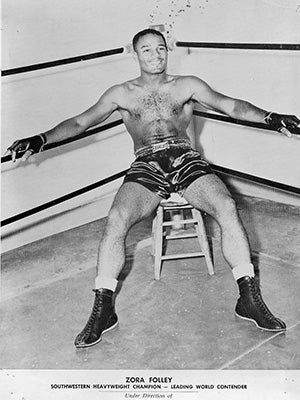
The fight itself was not broadcast on television to the Chandler area, meaning nobody in the City could watch it live. But that didn’t stop residents from finding a way.
“It wasn’t broadcast locally, so the community assembled at the football field at Chandler High and the mayor read off from the ticker and dictated what was going on to the crowd,” Crago said.
Throughout Chandler, Folley was given a hero’s treatment. Residents celebrated Folley with parties and parades, both before and after he left for the fight in New York City. Even though he lost, the City still treated him like a hero for his lifetime of athletic accomplishments.
When his boxing career ended, Folley returned home and became an active community member and politician in Chandler. He lived in the City with his wife Joella and their nine total children. In 1972, Folley was appointment to Chandler City Council.
After his death in 1972, the City built Folley Memorial Park in his honor. The park features a sign designed in the shape of a boxing ring to honor Folley’s life, career and contributions to Chandler. He was posthumously inducted into the Chandler Sports Hall of Fame in 2004.
Continue the Story at the Chandler Museum
Visit the Chandler Museum on June 29 at 10:30 a.m. for more details on Zora Folley’s fascinating historical significance to Chandler and the greater world of boxing from Museum Administrator Judy Crago. Admission is free and parking is available on site at 300 S. Chandler Village Drive.
